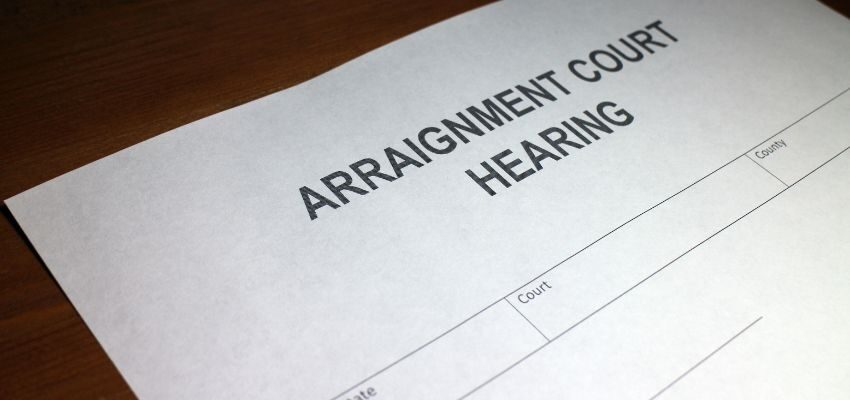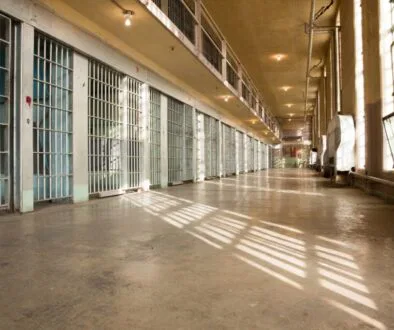How Long Do Court Cases Take From Arraignment To Sentencing?

Published December 30, 2023
Navigating court cases can often feel like going through a maze. It involves facing rows of deliberation and uncertainty. When disputes arise, or legal charges loom, the hope for a swift resolution can seem distant. Court proceedings are notorious for delays and unpredictable timelines. They can feel like they stretch on for an eternity, leaving individuals embroiled in legal tangles.
However, understanding the intricacies of these timelines is crucial. From arraignment hearing to sentencing, the journey through the courts demands patience and knowing the factors that influence the length of these proceedings.
In this article, we’ll explore the various stages of court cases. We’ll also share valuable insights to help you navigate the legal system.

What Are Court Cases?
Court cases, also known as lawsuits or legal cases, are disputes between two or more parties that are resolved in a court of law. They can be categorized into two major types:
- Civil cases. These involve conflicts between individuals or institutions, such as businesses. They typically revolve around matters like contracts, property, and family law. This includes divorce and custody. The person who sues is the plaintiff, and the defendant is the person being sued. The outcome of civil cases often involves monetary compensation. It can also involve specific orders to perform or refrain from certain actions.
- Criminal cases. These are charges brought by prosecutors against defendants for violating criminal law. Crimes are considered offenses against the state or society. The prosecutor represents the public interest. The defendant is the person accused of the crime. A criminal case can result in fines, imprisonment, probation, and other penalties.
Every court case follows a specific legal procedure. It comprises various stages. These include filing initial paperwork, discovery, trial, and an appeal. The primary goal of a court case is to reach a fair resolution following the principles of law. During court proceedings, if a family is unfortunately incarcerated, jail calling services become crucial for maintaining communication.

How Long Do Court Cases Take From Arraignment To Sentencing?
The duration of court cases, from arraignment to sentencing, can vary significantly based on various factors. These include the complexity of the case, jurisdictional differences, and specific circumstances involved.
In some places, if the defendant is in custody at the arraignment, the trial must start within 30 days of the arraignment or plea. In contrast, other areas may wait 68 to 85 days after the initial arraignment for the trial to begin.
Once a case is indicted and transferred to the felony court, dismissals can take longer. In cases where custody isn’t involved, it may take weeks or even months for an arraignment to occur. The court will schedule a sentencing date once the defendant pleads guilty or is convicted.
General timelines are established by law. Yet, the precise length of time can be influenced by various factors.
What Are The Key Factors That Influence The Duration Of A Court Case?
Several complex variables determine the duration of a court case. Each one influences the pace and length of the legal proceedings. It’s crucial to know these factors. It helps you navigate the intricate pathways of the legal system smoothly.
1. Type Of Court Cases
The type of court case plays a significant role in determining the timeline. Civil and criminal cases have distinct impacts. Civil cases involve disputes between parties, like contract disagreements or personal injury claims. They may follow different timelines than criminal cases the state prosecutes for law violations.
2. Complexity Of The Case
Cases with many witnesses, extensive evidence, or complex legal issues often take longer to resolve than simple cases. Additionally, complex forensic evidence, like DNA, can lengthen the process. This is because it requires a comprehensive examination.
3. Availability Of The Court
The availability of the court is a crucial factor that influences the progress of a case. A crowded docket can result in significant delays in scheduling hearings or trials. It affects the timeline of the case.

4. Availability Of Legal Counsel
Ensuring the availability of legal counsel is essential for proper preparation. This is true for both the prosecution and defense. However, scheduling conflicts among attorneys can potentially cause delays in the proceedings.
5. Persistence Of The Parties
The perseverance of the parties involved can significantly affect the timeline. This applies to both plaintiffs and defendants. This determination may lead to prolonged legal disputes. On the other hand, it may expedite resolutions through compromise or agreement.
6. Plea Bargains
In a criminal trial, plea bargains can significantly expedite the legal process. Reaching an agreement and bypassing a prosecution can swiftly and efficiently resolve the case.
7. Motions And Legal Challenges
Pre-trial motions, such as those seeking to suppress evidence or dismiss charges, need court rulings. These rulings can extend the timeline of a case.

8. Witness Availability
Legal proceedings can face delays due to factors like scheduling conflicts. Delays can also occur due to the complexity of securing essential witnesses for testimony. Coordinating the availability of many parties can sometimes pose challenges. Ensuring their presence to provide crucial testimony can be difficult. This can lead to potential delays in the timeline of the proceedings.
9. Defendant’s Right To Speedy Trial
The defendant’s right to a speedy trial can impact the timeline. However, the definition of “speedy” can vary depending on the jurisdiction and the case circumstances.
10. Appeals
Appeals have the potential to significantly prolong the timeline. They involve submitting more briefs and oral arguments. Appellate court rulings are also anticipated.
11. Continuances
Requests for continuances can lengthen the process if approved. Either party can make these requests to gather extra evidence or prepare.
12. Court Backlog
Overwhelmed courts grapple with many pending cases. They might allocate inadequate time to each case, resulting in delays in resolving them.
13. Settlement Discussions
In civil cases, settlement negotiations can expedite the timeline by avoiding a lengthy trial.
14. Changes In Circumstances
Unexpected events, such as new evidence or changes in the case, could prolong or reevaluate the proceedings.

15. Judge’s Rulings And Decisions
Judges’ workload and case management approach can impact their rulings and decisions. This can lead to potential delays in delivering these outcomes.
16. External Factors
Public holidays, emergencies, or unforeseen circumstances can cause project disruptions. This can lead to extended timelines.
What Other Factors Contribute To The Lengthy Resolution Of Court Cases?
Numerous factors impact the court proceedings timeline. Specific details or circumstances unique to each case can lengthen the deliberation period. These include:
- Emergencies arising on either side of the case
- Changes in venue
- Insufficient evidence to substantiate the validity of the case
- Scheduling conflicts
- Court management
- Issues with attorneys, such as interpersonal disagreements
While many other situations may result in delays, these are the most common.

Frequently Asked Questions About Court Cases
1. What happens after arraignment?
After an arraignment, several things can happen based on the plea entered and the nature of the case. Here is the general sequence:
- Plea entered. The defendant pleads guilty, not guilty, or no contest
- Not guilty plea. Proceeds to pre-trial phase, involving discovery and pre-trial motions
- Guilty or no contest plea. The court sets a sentencing date; there ‘s no trial unless the plea is withdrawn
- Bail review or modification. Judge decides on release, bail, or denial of bail
- Pre-trial conference/status conference. Meeting to discuss case status and readiness for trial
- Trial. Proceeds if not resolved through plea bargain or dismissal
- Verdict and sentencing. If guilty, the court sets a sentencing date.
2. How long does court last?
Court case durations vary based on various factors. Here are the general timelines:
- Small claims. Resolve within months
- Criminal. Straightforward cases may conclude in months. Complex cases, especially those involving trials, can take a year or longer.
- Civil. It can go on for months to years.
- Family law. Divorce and custody battles vary from months to over a year.
- Appellate. Appeals add months to years.
3. How long after arraignment is sentencing?
The time between arraignment and sentencing varies based on complexity, plea, and court schedule. In felony cases, arraignment may follow a preliminary hearing, with other steps scheduled within 7-14 days. The actual durations vary depending on jurisdiction and circumstances.
4. What happens when a case goes to trial?
When a case goes to trial, it follows a series of steps. Here’s a general overview:
- Jury selection
- Presentation of evidence
- Cross-examination
- Closing arguments
- Jury instructions
- Jury deliberation
- Verdict

Understanding Court Case Timelines
Navigating the intricate paths of court cases can often push the limits of patience due to their lengthy timelines. However, understanding the complexities and possible delays makes you better equipped. You can go through these legal proceedings confidently. Seek guidance and advocate for a prompt resolution to ensure your case progresses purposefully.
Advertisement
Save 90% Per Minute On Jail Calls With Us
US prisons charge lots of money per minute for long distance inmate calls. The loved ones of inmates are left to pay this bill. For a ten minute phone call you may find yourself paying over one hundred dollars. With SecurTel, you can reduce this charge to a fraction of the cost and only pay the local calling rate. Make calls from across the US or internationally for the local rate and help your family stay connected during a difficult time. Learn more about how to sign up for inmate calls here.

This Content Is Fact Checked
We have conducted thorough fact-checking on this content in-house. Get detailed insights into our website’s editorial standards by clicking here.

About The Author
Lenard Arceo is an experienced writer who enjoys coding software when not working. He has been blogging for a number of renowned publications for years. His commitment to writing facts based content has allowed him to help his readers uncover the truth and render justice in their lives.



